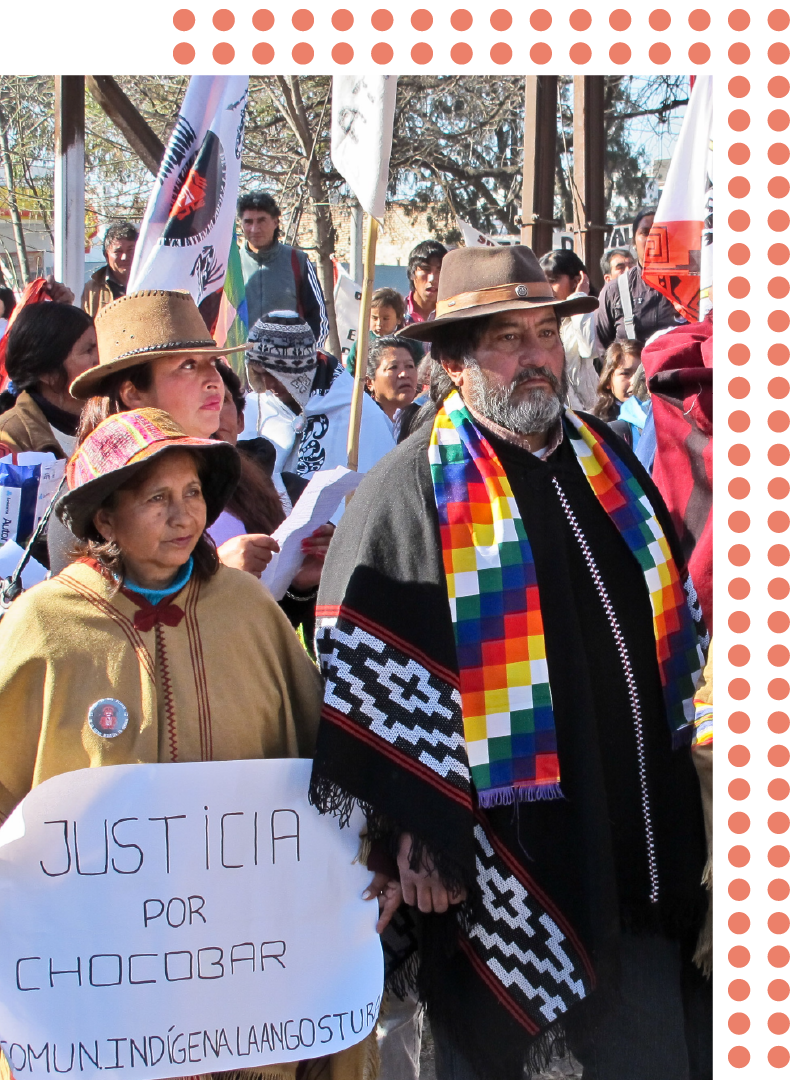My Research
My Research
I am currently pursuing three distinct, but interrelated lines of research on ethnic politics, nation-state formation, and development.
Nationalism and State Formation
I have published widely on how states construct a sense of national belonging, how social movements negotiate and contest official nationalisms, and the extent to which official and counter-state identity projects resonate in public culture. Compared to the rich scholarship on the origins of nationalism, scholars lack a comparably sophisticated set of theories for understanding changes of official national ideologies over time. My work addresses this theoretical blind spot by introducing a novel analytical framework focused on state-movement relations and the inner workings of the state to account for distinct patterns of ideological change.
This research is based on a comparative-historical analysis of carefully chosen countries in mid-20th century Latin America and draws on original primary materials such as school textbooks, teacher testimonials and picture postcards, gathered during more than 15 months of field research in the region. This substantive research combines with a a strong interest in state theory. I am particularly concerned with how to conceptualize and measure the constitutive dimensions of state capacity, and the relationship between state power and legitimacy.

-Nationalism and State Formation
I have published widely on how states construct a sense of national belonging, how civil society actors negotiate and contest official nationalisms, and the extent to which ordinary citizens subscribe to official and counter-state identity projects. A book manuscript on this topic is about to be completed. Compared to the rich scholarship on the origins of nationalism, scholars lack a comparably sophisticated set of theories for understanding changes of official national ideologies over time. Transformations of Nationalism: State Power and Ideological Change in Latin America addresses this theoretical blind spot by introducing a novel analytical framework focused on conflicts and alliances between state elites and social movements and the inner workings of the state to account for distinct patterns of ideological change.
The book bases its argument on a comparative-historical analysis of carefully chosen countries in mid-20th century Latin America and draws on original primary materials such as school textbooks, teacher testimonials and picture postcards, gathered during more than 15 months of field research. Cambridge University Press has agreed to review the manuscript. This substantive research combines with a a strong interest in state theory. I am particularly concerned with how to conceptualize and measure the constitutive dimensions of state capacity, and the relationship between state power and legitimacy.

-Ethnicity and Development
A second line of research brings together my interests in identity politics, state institutions and development and revisits one of the most powerful hypotheses in the political economy scholarship: the supposedly negative relationship between ethnic diversity and public goods provision. I have launched a research initiative that corrects for the fundamentally ahistorical and atheoretical approach found in this literature. Specifically, I advance a case for analyzing ethnic heterogeneity and public goods provision over time, by treating both as endogenous to macro-historical processes of nation-building and state institutional development. I argue that different nation-building modes—whether states seek to assimilate, accommodate, or exclude minorities—have distinct consequences for contemporary levels of diversity and collective goods provision. I further suggest that historical variations in the capacity of states to provide public goods affect both contemporary levels of heterogeneity and public goods provision.
The project thus aims to inject a historical perspective into debates around the political and developmental consequences of ethnic diversity. This initiative has been supported by the Effective States and Inclusive Development Research Centre (ESID) and so far has resulted in an award-winning special issue with Comparative Political Studies, for which I have written the co-authored lead article (with Prerna Singh, Brown University). In the upcoming years, I plan to further develop and test this new theoretical argument about the relationship between diversity and public goods provision at a global scale, by combining comparative case studies and cross-national statistical analysis.

-State Responses to Indigenous Mobilization
My third line of research investigates the nexus between the politicization of ethnicity and development in Latin America. The starting point is that indigenous people have become a formidable political force in their own right in the region, something unthinkable even a generation ago. Their movements demand equal rights to overcome longstanding socioeconomic inequalities, they aspire more inclusive nations that recognize ethnic differences, and they push for special rights to secure more political autonomy. What are the reasons for this dramatic politicization of ethnicity across the region? And (when) do indigenous movements achieve what they want? This research allows me to engage a variety of broader theoretical debates, including the relative absence of research on the consequences of social movements, and the actual implementation of multiculturalism policies in the global south. I have been successful in obtaining external funding for fieldwork in Argentina and Chile, and I have already published three book chapters and an article with the Journal of Development Studies on this research.
Currently I am working on two related papers . One is a subnational comparative analysis in Argentina that combines fuzzy-set qualitative comparative analysis (fsQCA) methods and in-depth case studies to explain subnational variations in the implementation of one of the main demands of indigenous activists—a survey of communal land claims—across all 23 provinces in Argentina. The other project (together with Maria Paula Saffon, UNAM Mexico) focuses on a factor that has been curiously overlooked in the existing literature on the causes of indigenous movements: the legacies of historical land struggles. Where rural communities obtained legal titles to collective lands from the Spanish colonial state more than 400 years ago, they can frame their contemporary demands as the restitution of lands lost through illegal dispossessions, whereas communities on lands that have never been formally recognized as theirs cannot employ this powerful framing strategy.


Nation-Building and Its Consequences
My present work focuses on nation-building as an understudied process. Most modern states claim to rule in the name of a national community of, at least formally, equal citizens, which inevitably confronts them with how to define national membership and govern ethnic differences. Some states pursue nation-building through assimilation, others accommodate the public expression of ethnic differences at least for some groups, and yet other states pursue the exclusion or even outright eradication of non-titular groups. Against this backdrop I have started a new research programme that maps variations in nation-building across time, countries, and ethnic groups to then investigate their drivers, and their consequences for ethnic identifications, the securitization of minorities, but also social inequalities, political stability, and propensity for civil conflict.
This historical approach to nation-building and its implications will also provide new evidence on the relationship between ethnic heterogeneity and development. A large part of academia considers ethnic diversity to dampen the prospects of economic growth and social welfare. My work provides a different interpretation. I focus on distinct trajectories of nation-state formation and the ways in which these have shaped present-day diversity and developmental outcomes. This research is supported by an ERC Consolidator Grant (October 2020-March 2026, ETHNICGOODS) and a Jean Monnet Network Grant (November 2020-April 2024, SECUREU), and has resulted in an award-winning special issue with Comparative Political Studies.
State Responses to Indigenous Mobilization
My third line of research investigates the politicization of ethnicity in Latin America. Indigenous people have become a formidable political force in their own right in the region, something unthinkable even a generation ago. Their movements aspire more inclusive nations that recognize ethnic differences and they push for special rights to secure more political autonomy. The rise of indigenous politics has attracted significant scholarly attention, while the enforcement and actual exercise of indigenous rights has received comparatively less consideration. We still know relatively little about how, when, and with what consequences indigenous rights to territory and autonomy prescribed internationally and included in many rewritten national constitutions are implemented. In many instances, the actual application of indigenous collective rights remains partial or elusive.
In response my research explores subnational variations in the implementation of indigenous rights to land across distinct provinces in Argentina. Specifically, I focus on a crucial first step in the application of these rights, namely a survey of the territories claimed by indigenous peoples. Based on a mixed-methods approach I find different pathways to implementation, crucially shaped by the relative power of the mining sector, the intensity of indigenous mobilization in a province, and subnational regime configurations. This research allows me to engage a variety of broader theoretical debates, including the relative absence of research on the consequences of social movements. It also speaks to broader debates around state formation. A large scholarship suggests that the “legibility” of society is crucial for the exercise of state power. But my work on Argentina indicate that greater legibility does not constitute an intrinsic driver of state action, but is better understood as a strategic choice that is also shaped by the motivations and organizational power of other collective actors.







